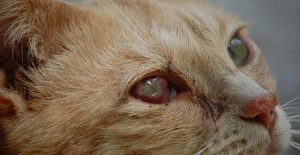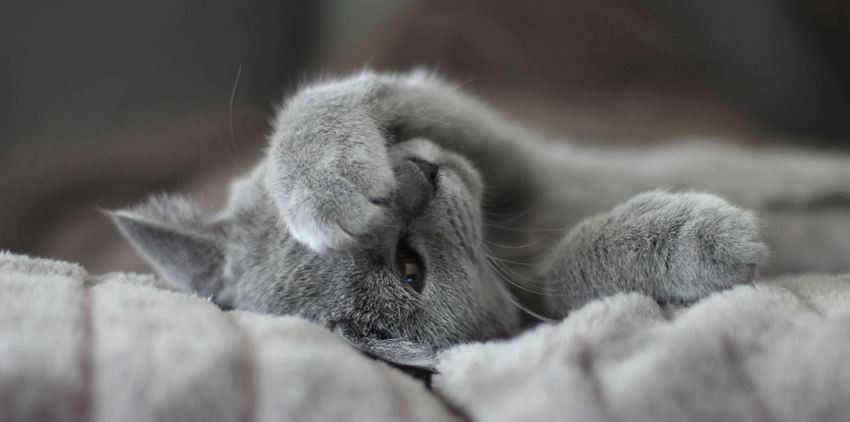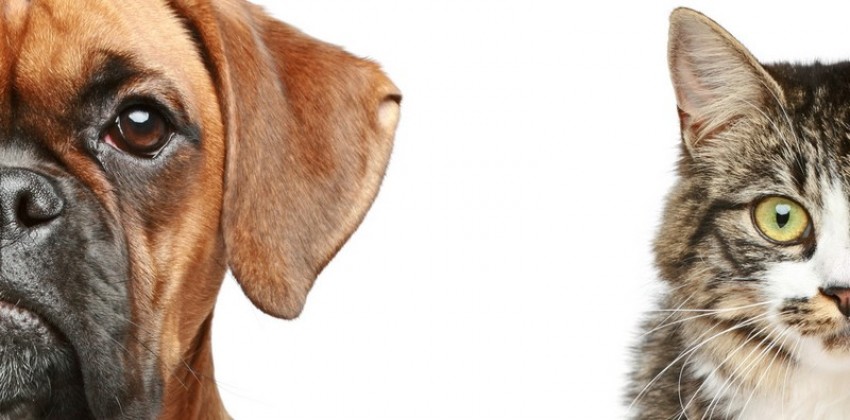Rhinotracheitis of cats: symptoms, treatment, vaccination against herpesvirus
 Rhinotracheitis of cats: symptoms, treatment, vaccination against herpesvirus
Rhinotracheitis of cats: symptoms, treatment, vaccination against herpesvirus
The cat rhinotracheitis virus (herpes virus) is a widespread disease of cats in Russia. This is due to the fact that vaccination is an infrequent procedure for cats in our country. This disease affects the respiratory system. In the zone of greatest risk are kittens and elderly cats.
Herpesvirus cats
Cats’ rhinotracheitis is caused by herpesvirus type 1. This is a highly contagious upper respiratory tract disease that affects the eyes, nose and throat of cats. Symptoms are similar to the flu / cold in a person.
Herpesvirus is the most common cause of damage to the upper respiratory tract of adult cats and kittens. In cats in a stressful situation and in the case when several cats live together, for example, in nurseries and shelters – the risk is much higher.
If a cat has contracted herpesvirus, it stays with it forever!
Primary infection is usually the most severe. After recovery, the cat remains a carrier, but in the event of stress (relocation, new animals, pregnancy, infection with other infections, etc.), rhinotracheitis may appear again. The use of corticosteroids can also trigger the activation of the virus in an infected cat. The herpes virus of cats is widespread, vaccination against it is mandatory for all cats.
Herpes virus affects
Eyes
Nose
Throat
Glands
Rhinotracheitis of cats: symptoms, treatment, photo
Herpes virus causes
Sneezing
Runny nose
Decreased sense of smell
Loss of appetite
Emaciation
The development of secondary infections
In pregnant cats, herpesvirus can lead to abortions.
Infection with rhinotracheitis cats
In the environment, herpes virus persists up to 24 hours!
Direct infection
In the uterus: possible infection of a kitten in the womb of an infected mother before birth
By air: Coughing and sneezing
Direct contact: saliva, discharge from the eyes and nose
Asymptomatic / latent carriers can spread the virus. A symptomless cat infected with herpesvirus can spread the virus and infect healthy cats
Indirect infection
through various objects and with the help of people with whom the sick cat had previously been in contact
Bowls for food and drink
Trays
Toys
Beds
Owner’s hands
Clothes and shoes
Symptoms of cat rhinotracheitis
The most common symptoms of cat infection with herpesvirus from the upper respiratory tract:
Sneezing
Discharge from the eyes
Nasal discharge: clear and watery or dense and mucus-like
Conjunctivitis (eye redness)
Fever
Loss of appetite
Lethargy
Salivation
Corneal ulcers accompanied by pain. Cat squints, photophobia, corneal clouding develops
Rhinotracheitis of cats: symptoms, treatment, photo
Diagnosis of cat rhinotracheitis
In the veterinary clinic Constellation (SVAO) conduct an inspection of the cat. There are other diseases with similar symptoms, therefore differential diagnosis is carried out. An analysis of nasal or ocular secretions is carried out in the veterinary laboratory by PCR. This method allows you to accurately understand whether a cat has herpesvirus.
In addition to this test, it may be necessary to perform a biochemical and complete blood count of the cat and urine analysis.
Treatment of cat rhinotracheitis
The goal of treatment is to support the animal’s body and treat the symptoms of the disease. Treatment depends on the severity of the disease and may include:
Keeping the cat’s nostrils and eyes clean. Use cotton swabs dipped in clean, warm water to clean the eyes and nose.
Broad-spectrum antibiotics can not rid the cat of herpes virus, but help to cope with the secondary pathogenic microflora, which multiplies against the background of rhinotracheitis.
Antiviral drugs, such as acyclovir, for cats in serious condition. Antiviral ointment for cats with eye damage
L-lysine is an essential amino acid that can inhibit the reproduction of the herpes virus.
Before using the drugs, be sure to consult with your veterinarian!
Cats often lose their appetite for respiratory infections, so it is recommended to switch to wet food, which is better to warm up before feeding.
Make sure the cat eats and drinks. Support in the form of more attractive foods, flavor enhancers or tube feeding may be needed if the cat does not eat regular food. In severe cases, intravenous or subcutaneous infusion is used.
To facilitate breathing, humidifiers are used. If this is not the case, you can place the cat in the bathroom with the shower turned on for 10-15 minutes (do not allow overheating at the same time !!!)
Uncomplicated rhinotracheitis with proper treatment usually takes 7 to 10 days.
Treatment of cat rhinotracheitis at home
Strictly observe all appointments of the veterinarian.
If you have other cats, isolate them until the sick cat recovers.
Is herpes cat dangerous for humans?
No, infection from a cat is impossible. Only domestic cats and their close relatives from the cat family can get sick. There are several types of human herpesvirus, but they are very different from cat herpesvirus.



